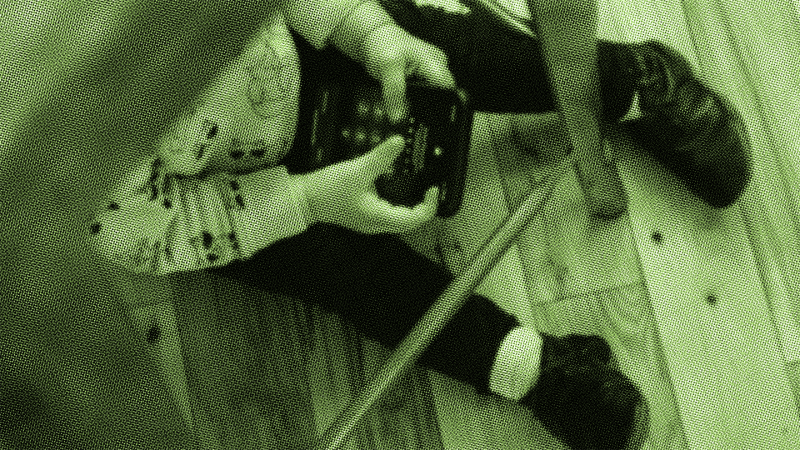Democrat Ron Kind of Wisconsin’s 3rd congressional district discusses the first days of the new congressional session, and what his party needs to do to regain support in Wisconsin and beyond. President Obama and Vice President-Elect Mike Pence were both making the rounds in Congress yesterday to shore up support for their positions on the Affordable Care Act’s future. We find out who they talked to and how they were received. New research on the rate of asthma among Amish children has led to intriguing information that could help determine some causes of mental illness. We find out what connections were made. Being bored might seem like a negative, but we find out why cultivating the ability to be bored might be an important skill.
Featured in this Show
-
The Battle Over Obamacare Begins On Capitol Hill
After Congress was sworn in, Republicans started planning to make good on their promise to repeal the Affordable Care Act, or Obamacare. Both Vice President-elect Mike Pence and President Obama held private meetings with fellow party members about the healthcare law that affects 20 million Americans. A congressional reporter will give us the latest on the fight over Obamacare on the Hill.
-
Low Asthma Rates In Amish Communities Offer Clues Into Mental Health
A growing body of research shows a link between the immune system and mental health. We talk to a neuroscientist who says that understanding immune disorders like asthma can also explain what causes, and prevents, mental illness.
-
How To Be Bored
When was the last time you allowed yourself to simply do nothing? Sit still? Be bored? Some say it could hold secrets to new discoveries and even improved wellbeing, but mastering the art of boredom ain’t so easy.
-
Being Bored Is A Skill Worth Saving, Author Says
In the world of social media and constant connectivity, many people have lost the ability to take time to simply enjoy silence, an author and academic said.
Eva Hoffman, whose newest book “How To be Bored” was published in February, said having unscripted time to reconnect with ourselves may be a dying art, but it’s crucial to our overall health and happiness.
Hoffman said boredom can help us know ourselves better, improve our creativity and give us more energy for our daily lives.
“I do think we are terrified of (boredom). We are terrified of moments of inactivity,” said Hoffman, who has written eight books and taught at several universities, including Columbia and the University of Minnesota.
The first step in overcoming that terrified feeling that can quickly sink in when we are away from our phone, tablet or computer is simple, Hoffman said. It’s just a matter of giving ourselves permission to spend time doing what we want.
“I do think we have lost the ability to have unscripted time to just let ourselves be without driving our minds or ourselves toward anything,” she said. “To engage in activity which is non-instrumental and non-goal driven. And of course, to disconnect from all of our digital devices.”
Hoffman said despite her own upbringing in a time period and culture that valued quiet introspection, she, too, found herself recently becoming addicted to the internet. She then made a conscious effort to reengage with her offline passions of playing the piano and reading books.
This act of being deliberate with oneself about carving out downtime is important, Hoffman said, otherwise it may always be put on the back burner. For example, she recommends setting aside part of an afternoon on the weekends to be “offline” or to drink your morning coffee without doing anything else simultaneously.
Not saving time for boredom can come at a cost, Hoffman said.
“I think when we move from one activity to another, from one digital click to another, it can feel very exciting for a while. It can make us feel important. But, after a while we lose a sense of ourselves,” she said. “We lose our own perspectives in all of this. We lose our sense of what we want. We also do become depleted, we become anxious.”
It’s been proven that too much time spent “plugged in” can lower self-esteem and cause depression or anxiety. Researchers at the University of Pittsburgh Medical Center found the more time young adults spend on Facebook and other social media sites, the more likely they are to become depressed.
Hoffman said our state of hyperactivity means we are losing “the ability to experience our experiences.” She also noted being constantly connected can actually lead to a loss of energy and can make it harder to be fully engaged in our work and relationships.
However, Hoffman makes it clear she isn’t recommending people live in a constant state of idleness, either.
She said even just a small amount of time to “replenish ourselves and nurture ourselves” can go a long way.
To reconnect with your “non-virtual” self, Hoffman recommends keeping a journal – which she believes is “a great aid to self-knowledge” – reading a book or taking time to paint.
“There are perfectly simple ways to do it, it’s just that they have become very difficult for us,” she said. “We are becoming de-skilled in absolutely basic human skills.”
-
Rep. Ron Kind On Congressional Priorities In New Session
Democrat Ron Kind of Wisconsin’s 3rd congressional district shares his thoughts on the first few days of the new congressional session, proof of Russian hacking, why Wisconsin went for Donald Trump, and a new bill he is sponsoring to reward healthy behaviors.
Episode Credits
- Rob Ferrett Host
- Veronica Rueckert Host
- Haleema Shah Producer
- Marika Suval Producer
- Judith Siers-Poisson Producer
- Rachael Bade Guest
- Eric Haseltine Guest
- Eva Hoffman Guest
- Representative Ron Kind Guest
Wisconsin Public Radio, © Copyright 2025, Board of Regents of the University of Wisconsin System and Wisconsin Educational Communications Board.



